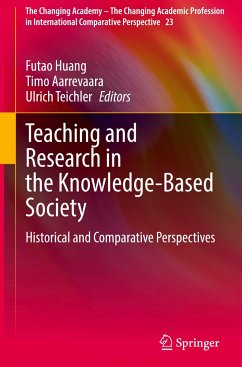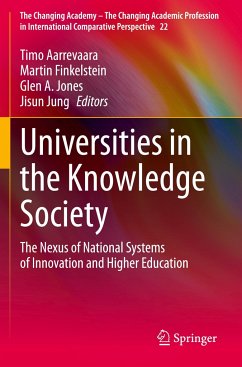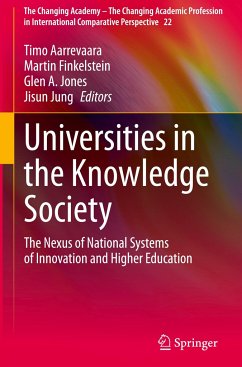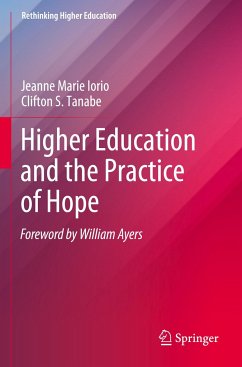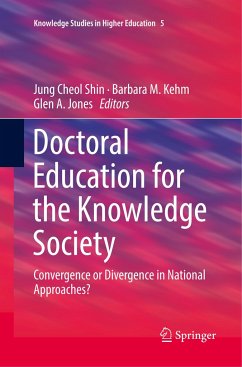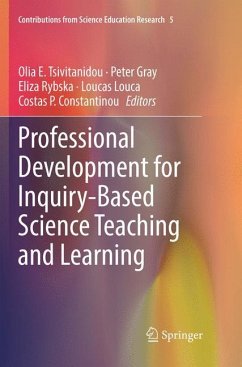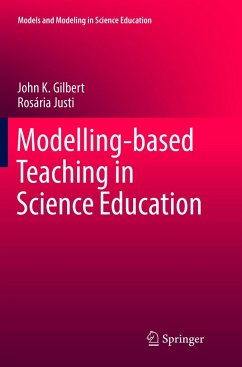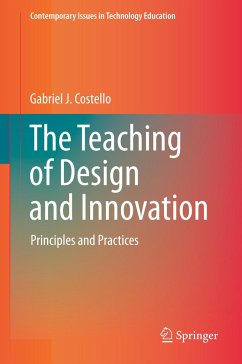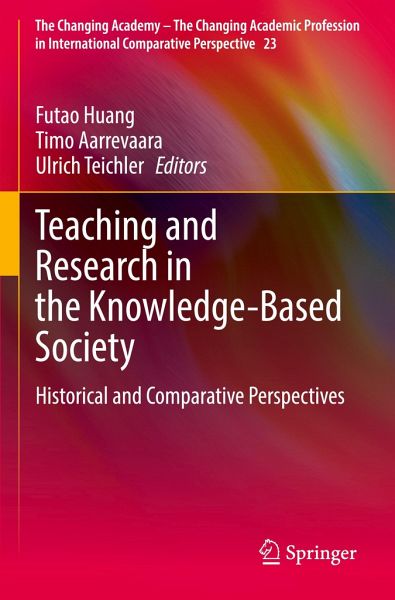
Teaching and Research in the Knowledge-Based Society
Historical and Comparative Perspectives
Herausgegeben: Huang, Futao; Aarrevaara, Timo; Teichler, Ulrich
Versandkostenfrei!
Versandfertig in 6-10 Tagen
113,99 €
inkl. MwSt.

PAYBACK Punkte
57 °P sammeln!
This book addresses common themes relating to the teaching and research nexus in the knowledge-based society through historical, comparative and empirical perspectives. It analyzes traditions of academic systems and national initiatives, and other factors affecting the main characteristics of the teaching and research nexus in eleven case countries from Asia, Europe, North America and South America.The book identifies key challenges of the academy, and trends in relation to the teaching and research nexus. The focus of case countries is on the attitudes and activities of the academy, as report...
This book addresses common themes relating to the teaching and research nexus in the knowledge-based society through historical, comparative and empirical perspectives. It analyzes traditions of academic systems and national initiatives, and other factors affecting the main characteristics of the teaching and research nexus in eleven case countries from Asia, Europe, North America and South America.
The book identifies key challenges of the academy, and trends in relation to the teaching and research nexus. The focus of case countries is on the attitudes and activities of the academy, as reported in the international comparative survey "The Academic Profession in the Knowledge-Based Society" (APIKS) in 2017-18. The data compared with previous international comparative survey "The Changing Academic Profession" (CAP) in 2007-08 in most chapters to make time series changes.
The book discusses the teaching and research nexus in the case countries similar to and different from those of reference countries drawing on findings from the international databanks of the two international comparative surveys and previous research.
The book identifies key challenges of the academy, and trends in relation to the teaching and research nexus. The focus of case countries is on the attitudes and activities of the academy, as reported in the international comparative survey "The Academic Profession in the Knowledge-Based Society" (APIKS) in 2017-18. The data compared with previous international comparative survey "The Changing Academic Profession" (CAP) in 2007-08 in most chapters to make time series changes.
The book discusses the teaching and research nexus in the case countries similar to and different from those of reference countries drawing on findings from the international databanks of the two international comparative surveys and previous research.





